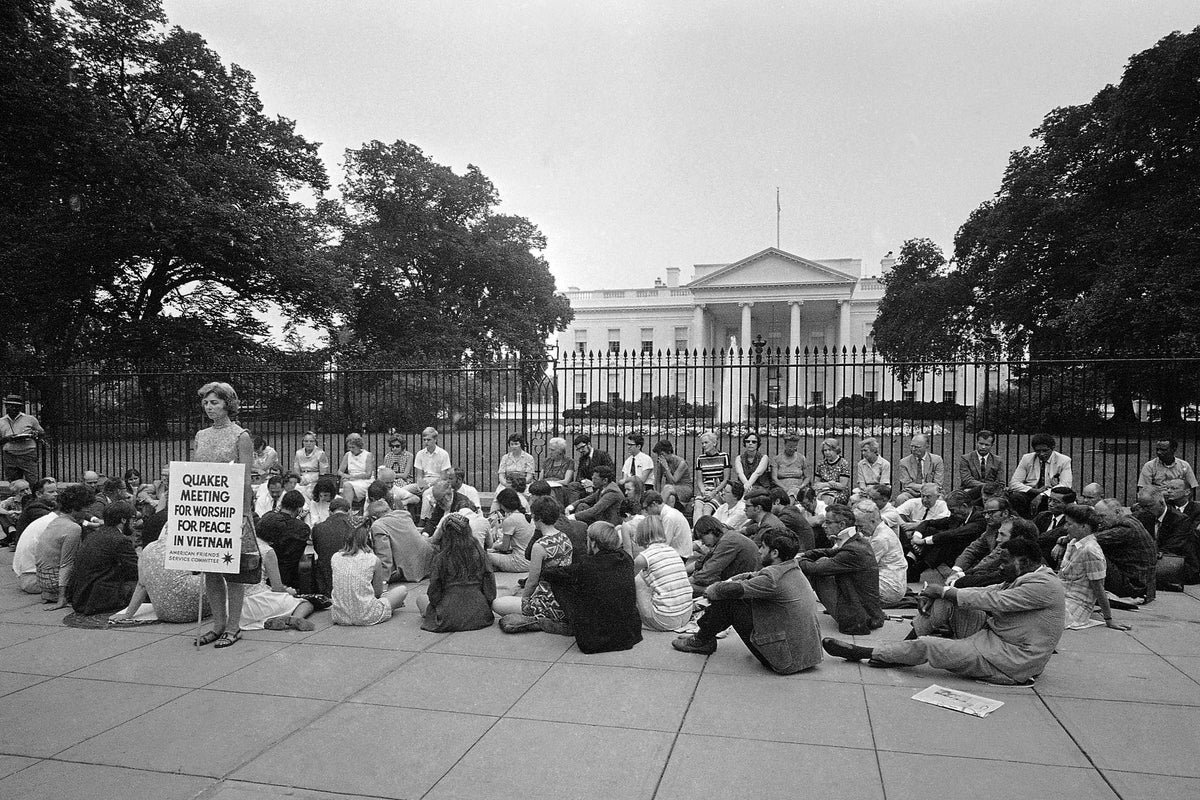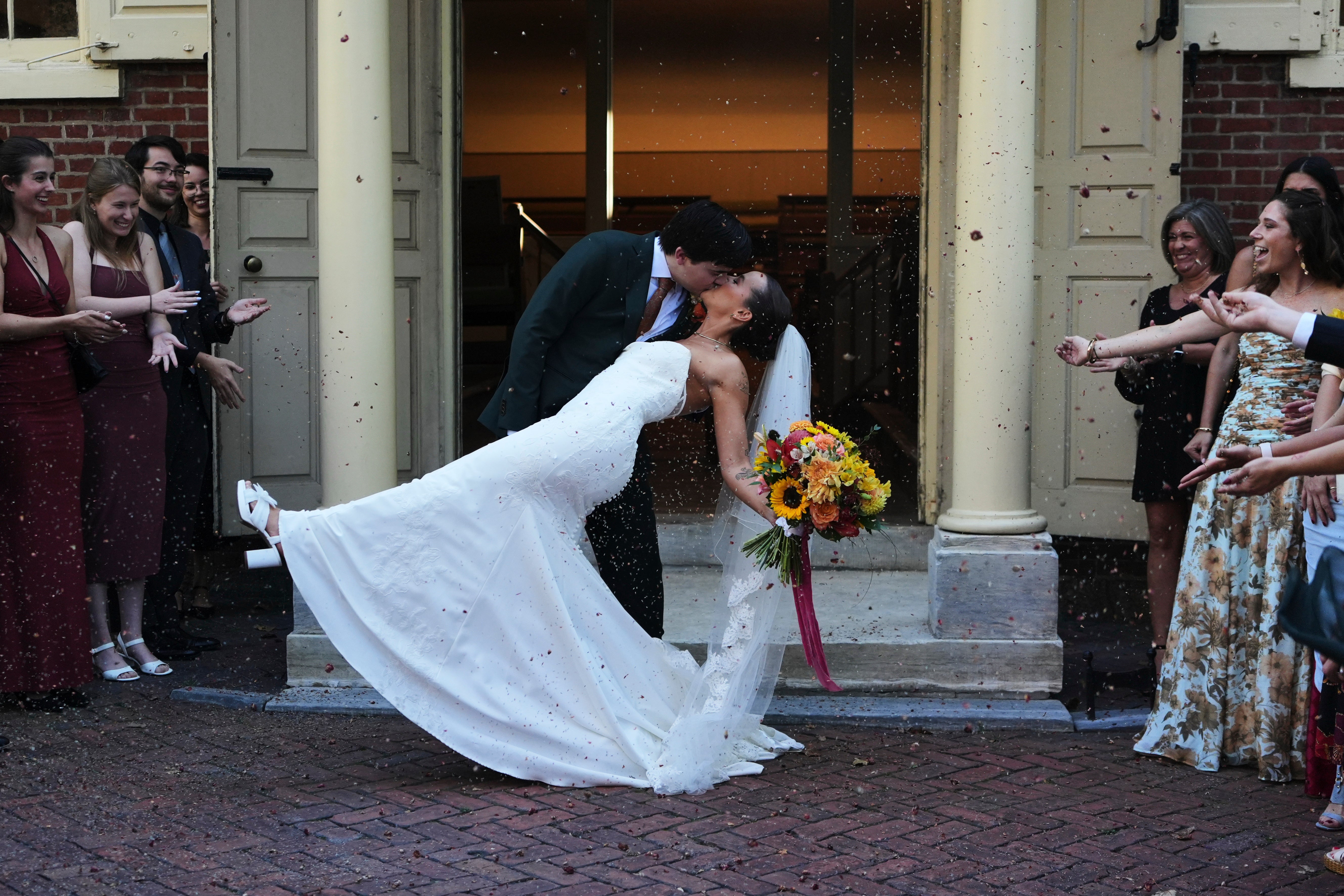
"Do Quakers quake? Do they eat Quaker Oats? Are they still active today?" These are the questions frequently posed by visitors to Philadelphia's historic Arch Street Meeting House, revealing a widespread lack of understanding about the Quaker faith. Yet, despite this, the site has seen a significant surge in attendance in recent years.
The Arch Street Meeting House Preservation Trust has actively worked to demystify the faith and its iconic early 19th-century building – one of the world's largest and most important Quaker structures – through engaging exhibits, modern technology, and social media outreach. This concerted effort has successfully drawn new audiences, eager to learn about the enduring legacy of the Quakers.
Here's a look at the faith's beliefs and history — and some common misconceptions about it.
Quakers began in England
The Religious Society of Friends — best known as the Quakers — originated in 17th-century England. The Christian group was founded by George Fox, an Englishman who objected to Anglican emphasis on ceremony. In the 1640s, he said he heard a voice that led him to develop a personal relationship with Christ, described as the Inner Light.

Fox taught that the Inner Light emancipates a person from adherence to any creed, ecclesiastical authority or ritual forms. Brought to court for opposing the established church, Fox tangled with a judge who derided him as a “quaker” in reference to his agitation over religious matters.
Quakers worship in silence and believe in the 'Inner Light'
Quakers follow values of simplicity and equality and believe that everyone can have a personal connection with God. The basic unit of Quaker organization is the weekly meeting, which corresponds to the congregation in other churches. There are no religious symbols or clergy, and no one sings or chants. Quakers simply gather for silent worship at meeting houses, and wait for a message from God to move through them until they speak. This form of worship focused in stillness has been around for more than 350 years.
Quaker couples officiate their own weddings
Quakers marry in a self-uniting ceremony without an officiant. Couples observe silence that is only broken when they exchange their vows. At the end, guests sign, as witnesses, a marriage certificate.
Quakers have a long history of social activism and pacifism
Historically, Quakers have been involved in peaceful protests to end wars and slavery, and support women’s voting rights in line with their commitment to justice and peace. Earlier this year, Quakers marched from New York City to Washington to demonstrate against the Trump administration’s crackdown on immigrants.
William Penn was a Quaker
Penn was an English Quaker who founded Pennsylvania following the faith’s emphasis on religious tolerance. In the U.S., Quakers became highly influential in cities like Philadelphia and founded colleges in Pennsylvania, including Bryn Mawr, Haverford and Swarthmore. But members of the group also faced scorn for refusing to join wars due to their belief in pacifism and nonviolence. Some were persecuted and even killed for their religious beliefs.
Quakers are still around, and most live in Africa
Today, there are an estimated 400,000 Quakers worldwide. About half live in Africa; most are in Kenya, where in contrast to the silent services, they often use bands and choirs and evangelize.
And finally ... Quaker Oats is not Quaker
Quakers say people often confuse them with Amish or Mennonites. Or say they knew about them through Quaker Oats, which is unrelated to the faith. The company uses “a figure of a man in "Quaker garb” with white hair and a tall black hat on its label that the owners picked along with the Quaker name more than 150 years ago “as a symbol of good quality and honest value.”
All the celebrities running the 2025 New York City marathon
Lily Allen and David Harbour’s viral NYC townhouse lists for $8million
Jonathan Van Ness addresses ‘gigantic conversation’ around his weight loss
Counting the money cost of menopause - and how to take control
I only wore black for the entire month of October – and it changed everything
‘Needs to be slimmed down’: Readers debate the Royal Family’s future







